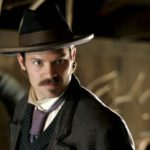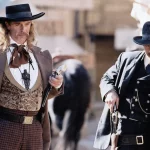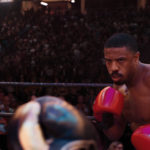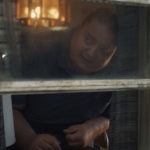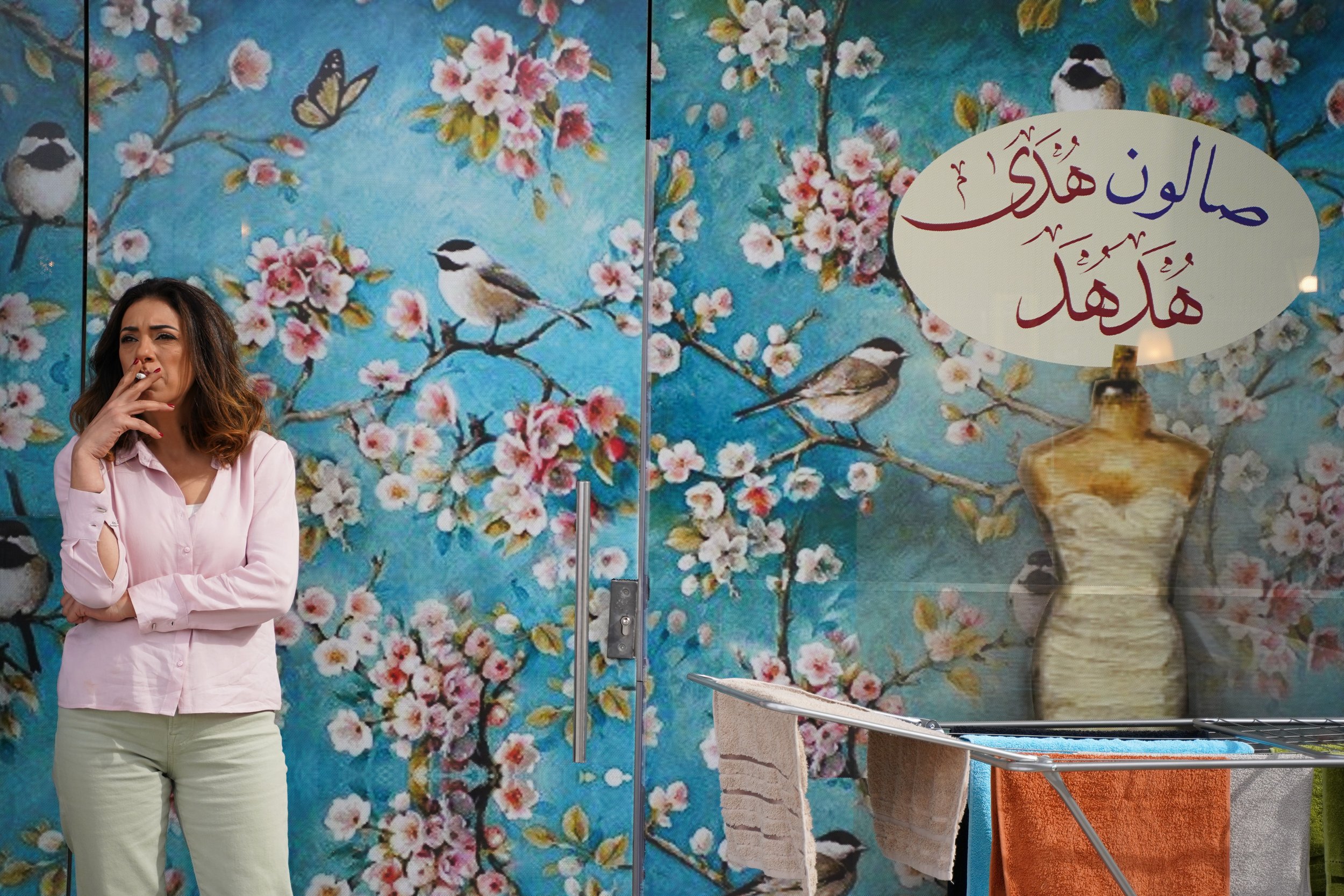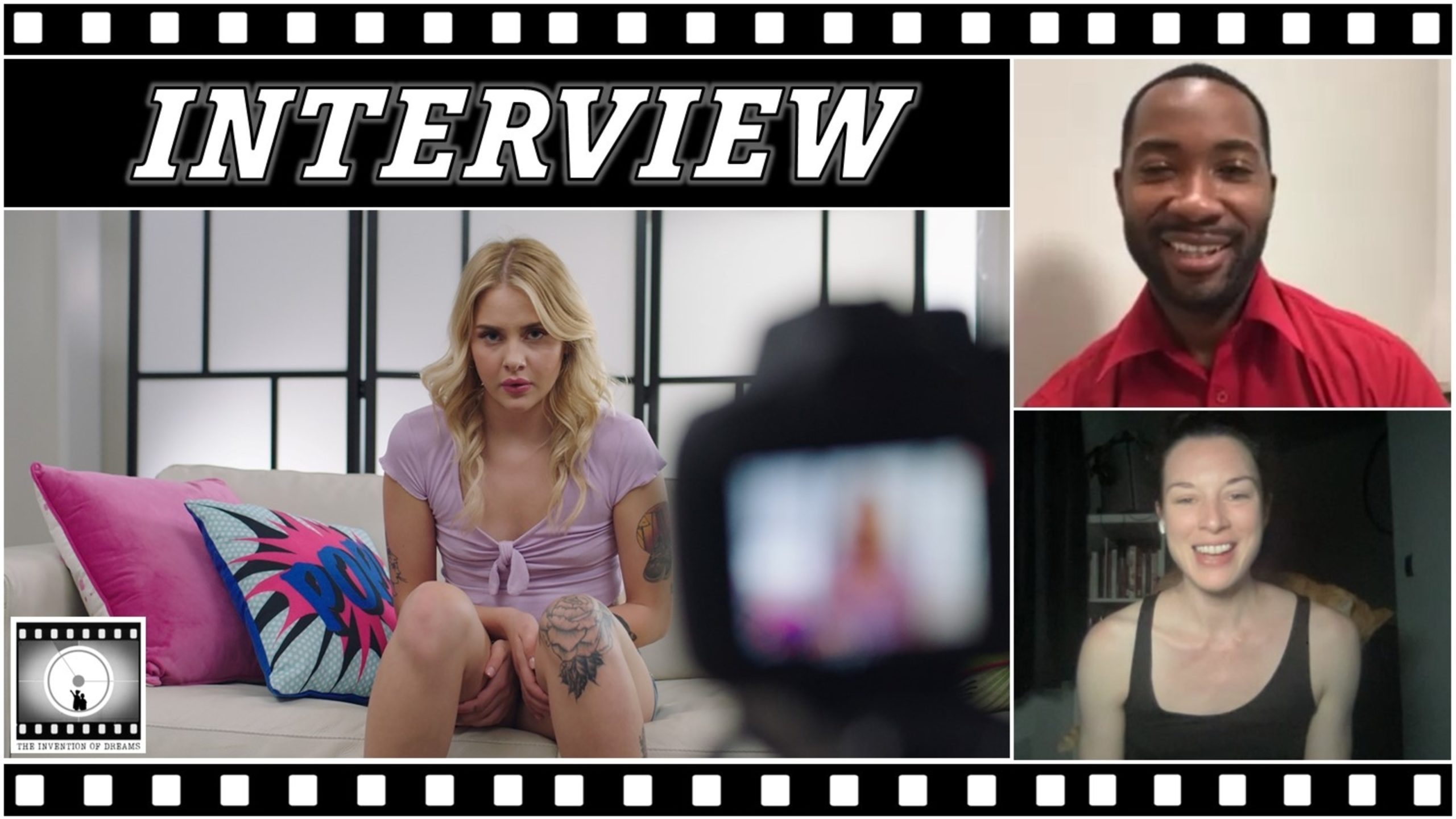
I had the chance to ask Simon Drake, writer and director of Lost Angel, a couple of questions about his experiences during the production of the new film. This was Drake’s first venture into the feature film world.
Lost Angel tells the story of Lisa, a young woman who returns to her hometown after the tragic and untimely death of her sister. Lost Angel is a mystery drama which delves into the supernatural, but is approached in a grounded manner. It features wonderful performances by relative newcomers Sascha Harman and Fintan Shevlin. The themes of the film spoke to me, and Simon’s passion for the project is evident in how he answers each question.
Simon Drake’s Journey to Becoming a Filmmaker
What was your journey to becoming a filmmaker? Is it something you always wanted to do?
Drake: I’d always wanted to make films since my early teens. I bought my first VHS video camera at 14 by working lots of extra shifts at my weekend jobs and self-funded a bunch of films starring my friends. Mainly they were action movies as I was (still am…) really into Jackie Chan/John Woo and James Bond films. Then spent my 20s travelling and going to university to study photography instead. After that didn’t really work out, I started trying to get into films as I realised that was still what I was interested in. Getting as much experience as I could on sets, volunteering on all the low budget films or local music videos I could find. Which helped to know people in the indie film world and gain some contacts. That lead to get some jobs on bigger projects for the BBC and larger scale feature films.
It was a good learning curve, however as I had smaller roles on those projects I was often far removed from the creative process and wanted more involvement/ownership over the projects as you work so hard on something, but I felt it didn’t really represent much of my voice (for better or for worse!).
When I heard a friend (Dan Rickard who went on to do cinematography and VFX on Lost Angel) was planning making a local zombie film (Infected: Darkest Day, distributed by Left Films who also distributed Lost Angel) I jumped at the chance to get involved from the ground up. I found myself producing, acting, co-editing and co-directing. As we were finishing that we had some momentum going working together and I felt I had a few more skills to now tackle Lost Angel.
The Transition to Feature Filmmaking
This is your debut writing and directing a feature film. How did the experience differ from your expectations? How did it differ from making shorts?
Drake: Everything was bigger in scope and complexity (and frankly effort…) than making a short film. When making a feature film, even on a zero budget, I feel that the overall scale must be larger than you would find in a short film or TV show. Not that Lost Angel is an Inception/Lawrence of Arabia type cinematic spectacle, but I do think it has to follow a certain cinematic structure and therefore things must be more heightened. Raising the stakes/scale more to the story telling than I would have for a short film.
There is more time in a feature length to create bigger character arcs and push the drama more. Not being afraid to put the main character through major challenges, making things hard for them and giving them a low place to then overcome by the climax, which ideally makes a more satisfying overcoming of obstacles. There’s a saying in the script writing world “you need a lot of Shawshank, before you get to the redemption…” which I tried to adopt.
I knew it would be hard work, but I do not think I expected quite how much hard work. Just to keep focused on it for many years whilst real life challenges came along too. That was very emotionally draining, much more than I was anticipating.
The Interplay of Writing and Directing
How do you think directing something you also wrote contributed to the production and your efforts?
Drake: The advantage was being able to adapt to any changes that came along, which were often. We were so tight for time and money or other production challenges such as bad weather or locations or actors falling through at the last minute, some elements or dramatic pieces had to be changed at short notice. Knowing where the story was going as the director yet being able to think quickly on my feet as a writer was helpful if something needed changing unexpectedly.
The script also developed into shooting and post production, as actors brought ideas to the table or elements/sub plots changed in editing. Yet the framework and tone of the script stayed close to the original concept Louise, and I created.
Starting shooting with a tight script is a life saver when on a low budget film, when time constraints and compromises are happening constantly or you’re exhausted or behind schedule etc, it is easy to miss something or start to second guess ideas. I knew I could trust the script and I didn’t have to worry about ‘is this scene going to link the previous/next scene?’ as I’d already mapped it out during the script stage. A strong road map of the narrative structure helped immeasurably when having to film quickly or if there were issues that needed changing, they were relatively easy to navigate through.
Location Scouting on a Budget
It appeared as though the sets and locations used for the film were meant to match the tone of the film. How did you go about selecting them and staging the filming?
Drake: I did not originally have specific locations in mind when writing the script, as I was never sure where we’d get the chance to have filming access. I had a vague sense of ‘I’d like this type of place’ and feel/tone when writing though or looking around for environments which I felt looked visually interesting.
My plan was to write what locations I felt the story needed first and let that dictate the ambition level rather than scaling down what I thought I could access for a micro budget. I still went into the project knowing compromise would be likely and accepting I could scale things down if necessary.
For example, if I’d write a scene set in a museum I figured, if I couldn’t get a museum location, I could get a library, if I couldn’t get that, I could get a bookshop, and so on downwards. In the end every location I wrote into the script I managed to somehow get permission to film in.
I did make the decision early on to create the fictional island of Newpoint so I could film in different locations and have backdrops of my choosing without it being related or identified as a specific geographical place.
Another deliberate decision was to have a different type of location in almost every scene. As I knew i’d be working on a micro budget, I tried to have as much visual variety as I could accomplish to make things a bit more visually interesting for an audience. If a viewer is not as into the characters or drama, at least the backdrop changes every few minutes! It made some of the organising difficult, but made for some interesting locations to film in.

Simon’s Working Relationship with Star Sascha Harman
Sascha Harman [who stars as Lisa in the film] carried a large burden in her role and delivered it very naturally. Could you describe your collaboration with her?
Drake: As Lisa carries the film, and is in every scene of the film, I needed a sense that the person would commit to such a big project before I considered getting others involved, as well as had the charisma to take on the lead. A mutual friend (Samantha Bolter who helped with most of the casting) put me in touch with Sascha and I had briefly met her before; on a short film we were both involved in several years previously.
Sascha was one of the first people I saw for Lisa, and she had the right take on the character for what I was after and a good attitude too. Although neither of us knew quite how long the project would take or how much commitment it would end up being. If I recall, at first I was saying “Oh, it’ll be done in a few months…” It was more like several years!
She was incredibly committed though and brought lots of great ideas to the table, she would suggest actors she knew for other roles not cast yet or suggest shooting locations she had found which we would end up using.
It was not an easy shoot at times, as a micro budget with no frills, we often had very little rehearsal time or were filming in cold locations etc, but her (and the other cast and crew) were terrific to stick with it.
Simon Drake on Lost Angel’s Themes
One of my favorite things about the film is that many of the movie’s themes (loss, faith, redemption) seem very personal, yet you also do not make any emphatic proclamations. How did you balance the tone of the message you wanted to deliver?
Drake: I tried to focus on telling a story, rather than proclaiming what the film is “trying to say” to people. I would not presume to make definitive commentary on themes or the views of anybody else, nor give them advice or even claim to know how they are feeling.
I would occasionally have to remind myself the film is a piece of fictional entertainment, not a therapy book. A person’s own personal circumstances/experiences are incorporated into what they do or create. I wanted to explore a backdrop of emotional/spiritual themes of loneliness, grief, addiction, suicide etc, as they as important themes for me, yet should always be in service of the story too. If I actively tried to sit down and say “I’m going to write about such and such important theme…” I think it would have come across as overt and possibly a bit preachy.
As the director I aim to steer certain story beats, dramatic plot elements, imagery and music to hopefully create an engaging emotional story. A story which is personal for me, yet also creates a wide enough canvas to have themes which may resonate for a viewer to bring their own experiences to it too.
What’s Next for Simon Drake
What projects do you have on the horizon?
Drake: I’m not rushing to take on another feature film straight away as it was a lot of hard work and I don’t feel I have another story to tell quite yet. I have recently edited a few film projects, which was enjoyable. I’m happy to slow things down for a while, taking it easy; watching movies, playing some basketball and seeing what creative elements come to me in the future.

Lost Angel is available now on video on demand and digital platforms.






